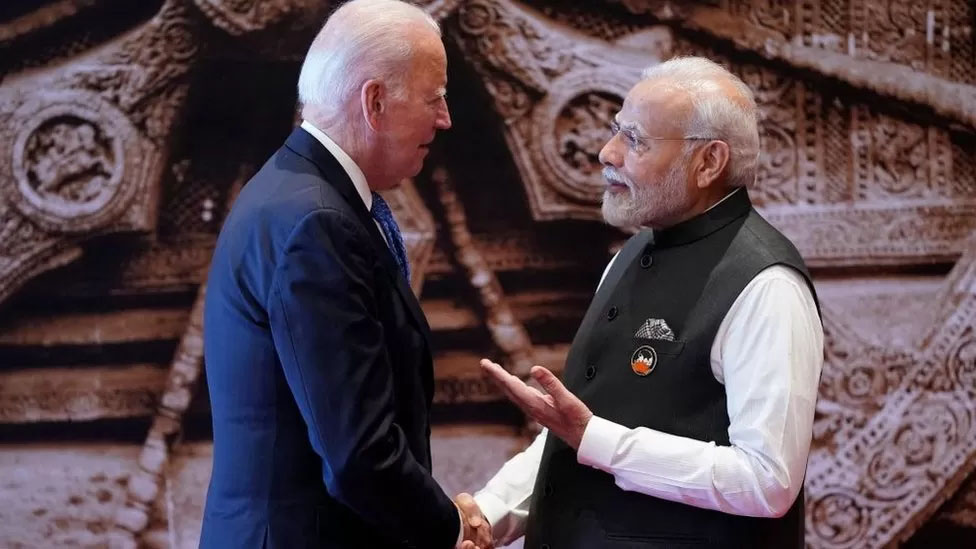Mr Biden was in the Indian capital to attend the G20 summit. He also held a bilateral meeting with Mr Modi.
The US president left India on Sunday before the summit ended to travel to Vietnam.
Activists and rights groups have questioned India’s deteriorating human rights track record under Mr Modi.
His government has denied allegations that attacks on minorities, especially Muslims, have risen since his Hindu nationalist Bharatiya Janata Party (BJP) came to power in 2014.
Mr Biden made the remarks at a press conference in Hanoi, where he said he had “substantial discussions” with Mr Modi about continuing to strengthen the India-US relationship.
“And, as I always do, I raised the important [subject] of respecting human rights and the vital role that civil society and a free press have in building a strong and prosperous country with Mr Modi,” he added.
According to the latest World Press Freedom index released by Reporters Without Borders (RSF) in May, India’s spot has dropped 11 places from last year to 161 out of 180 countries.
Campaigners have often called on Western leaders including Mr Biden to raise these issues with Mr Modi. But experts say the US will tread carefully as India is seen as a crucial ally in attempts to stem China’s rise.
In May, the US laid out the red carpet for Mr Modi, who travelled there on a state visit. Before the visit, White House National Security Adviser Jake Sullivan told reporters that while the US would make its “views known” when it sees challenges to freedoms, “we do so in a way where we don’t seek to lecture or assert that we don’t have challenges ourselves”.
In Hanoi, Mr Biden also spoke about the India-Middle East-Europe economic corridor deal which was announced during the summit and called it a “ground-breaking partnership”.
The corridor aims at linking countries in the Middle East by rail and connecting them to India by port and analysts see it as a counter to China’s Belt and Road project.
Mr Biden travelled to India on Friday for the G20 summit. After his arrival, he and Mr Modi held bilateral talks which was then followed by a dinner at Mr Modi’s official residence.
Mr Modi has not held a solo press conference since he became prime minister, and journalists were not invited to ask questions to the leaders after the talks or the dinner.
India’s statement issued after the meeting said that the two leaders pledged co-operation on a number of issues, and did not mention a conversation about human rights.





